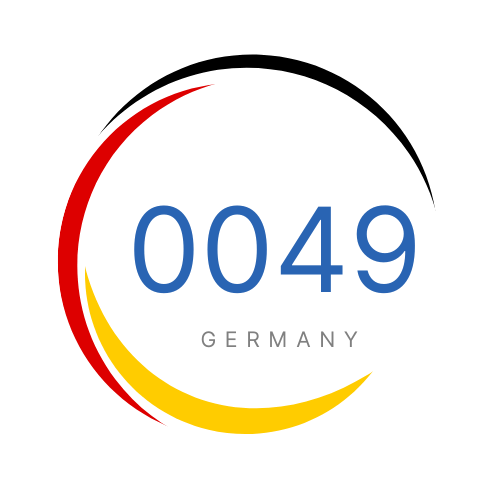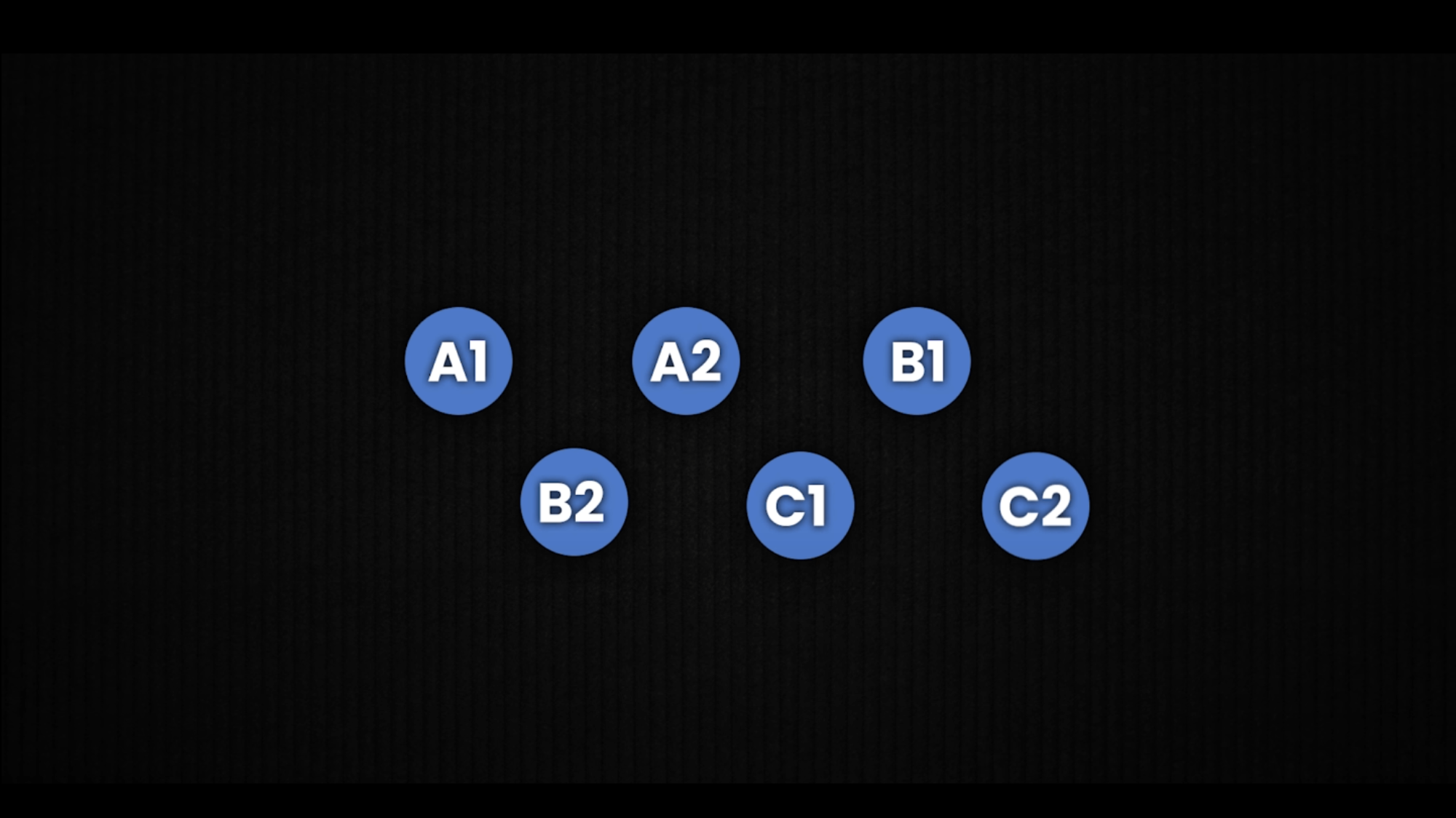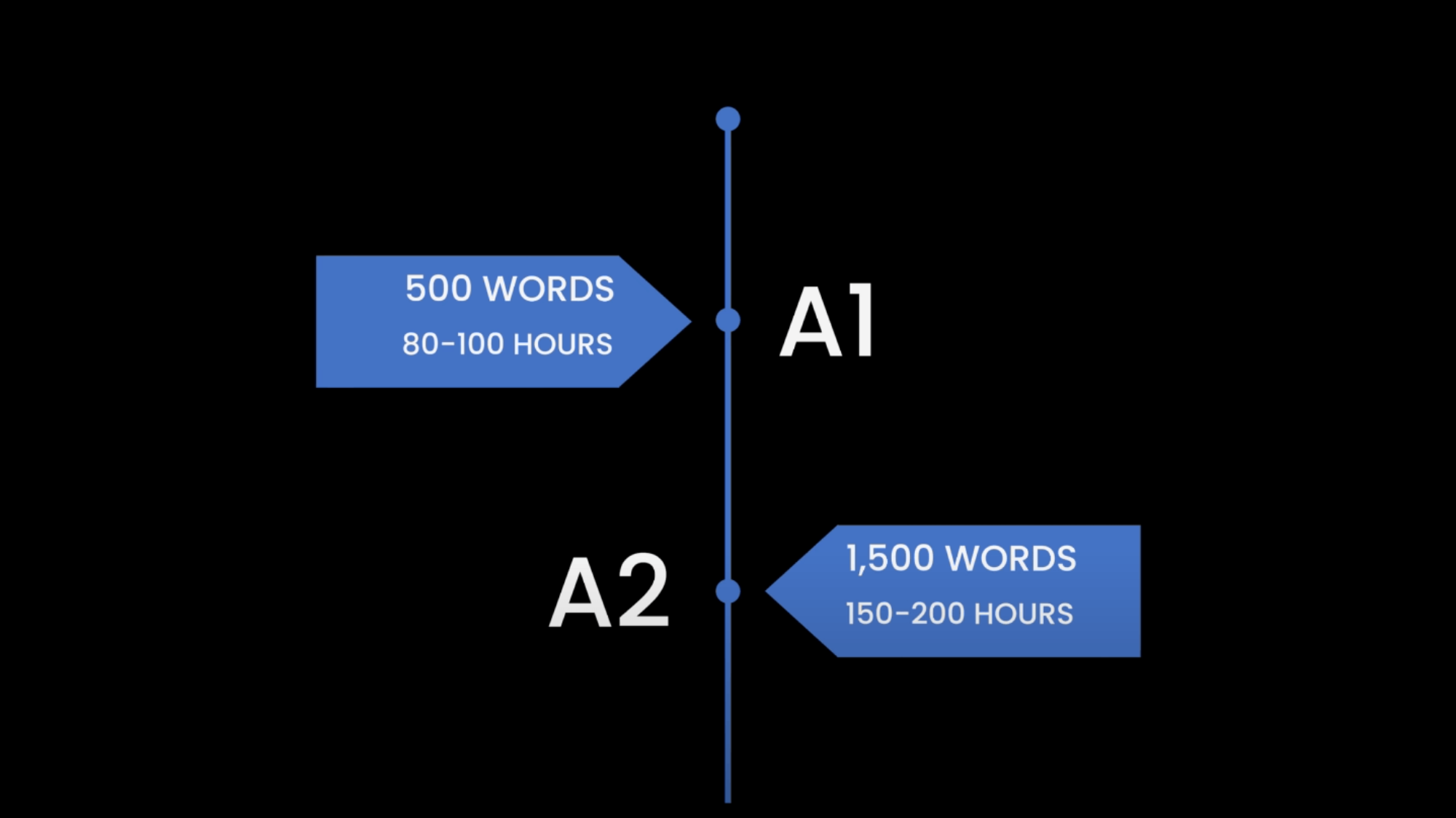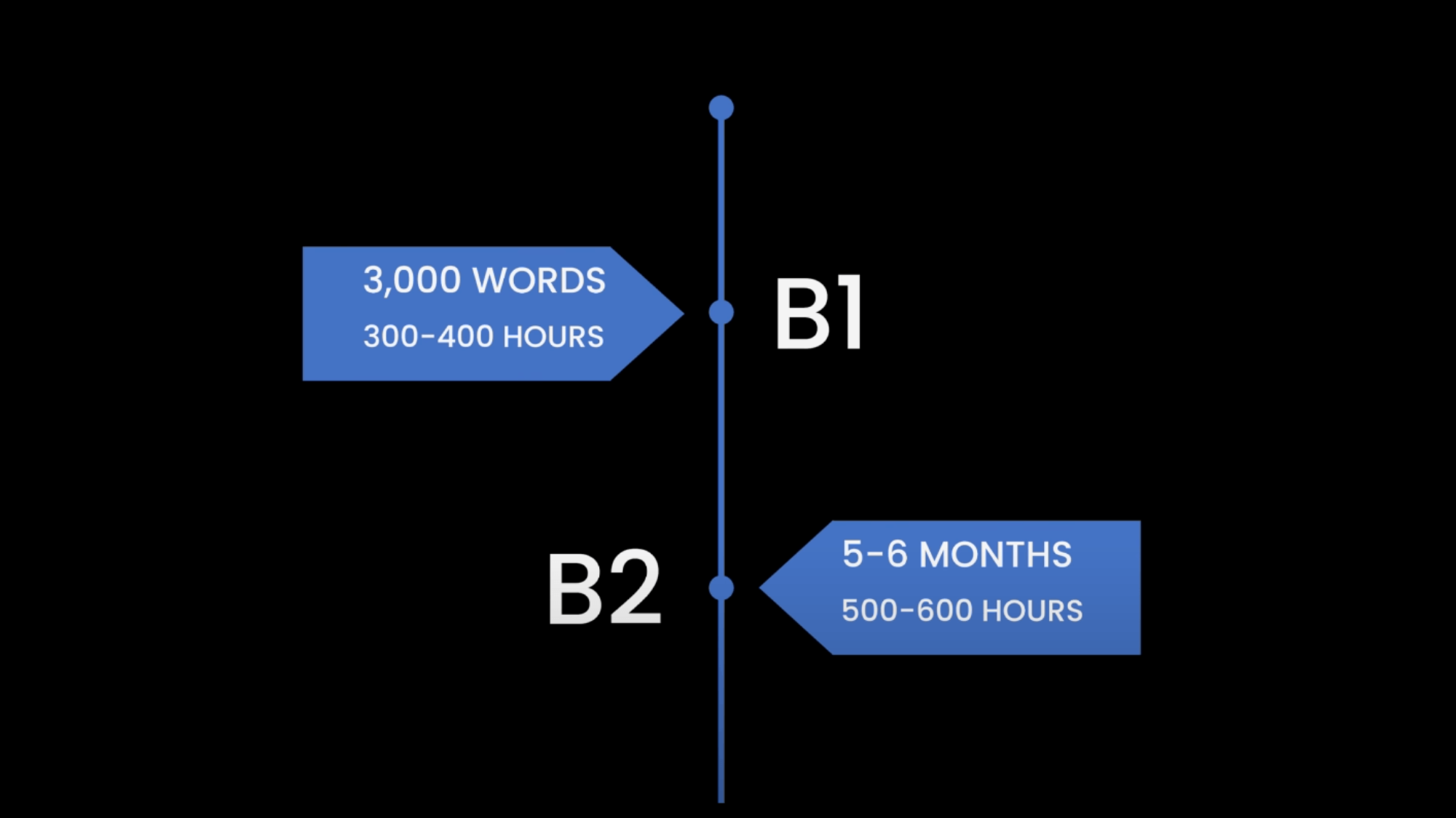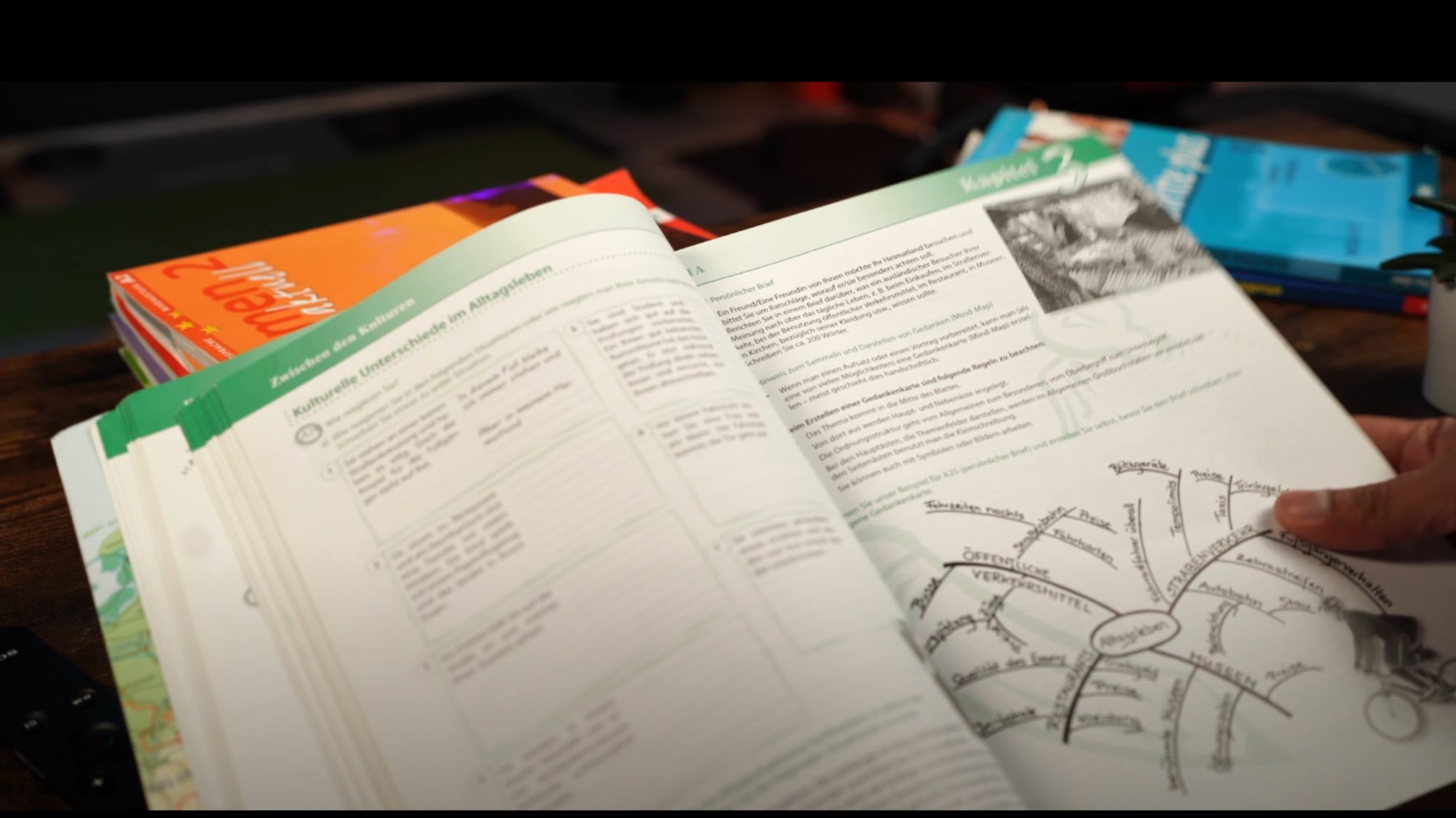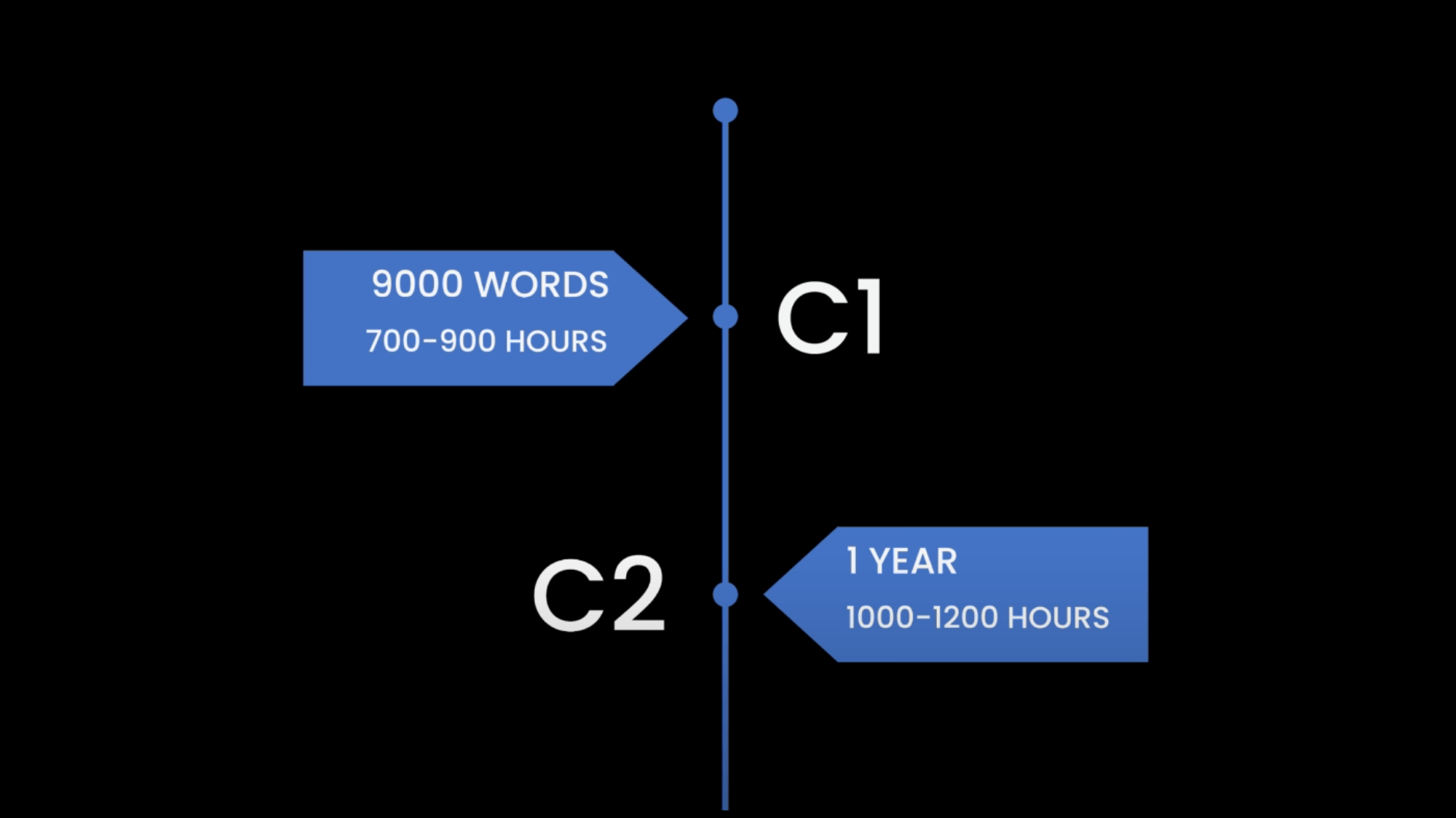How Long Does It REALLY Take to Learn German? (A1 - C2)
If you’re someone who wants to come to Germany for studies or work, learning German is a must. It will open up more opportunities for you and make your life here a lot easier. But here’s the thing,cGerman isn’t an easy language. It’s not something you can pick up in a few days or weeks. So the real question is: how much German do you actually need to learn? And how long does it take to get there?
Factors That Affect How Fast You Learn German
Before we jump into the numbers, there’s something important we need to talk about. There are a few factors that decide how fast you can learn German or any language really. And the first one is:
Time
Now this is no secret. The more time you spend learning something, the faster you’ll get better at it. So if you’re doing an intensive language course, 8 hours a day, 5 days a week, you’ll start seeing results faster. It also matters how much time you can invest outside of the classroom to learn and practice. If you’re learning only a few words here and there, your progress will definitely be slow.
Environment
Along with the time factor, the environment around you also matters when learning German. If you’re living in Germany, or anywhere people actually speak German, this can make a huge difference on how fast you learn. The more you expose yourself, through speaking, listening, reading, or even just thinking in German, the faster you’ll improve.
Native Language
Your native language also has an impact on how fast you learn German. English, Dutch, and Swedish are all related to German. So if you already speak one of them, you’ve already got a bit of a head start. Now, if your native language is French, Italian, or Spanish, the words might feel different, but you’ll still see some similarities, especially when it comes to grammar.
However, if you speak a Slavic language like Russian or Polish, or something totally different like Arabic, Hindi, or Chinese, then yeah, it’s going to be a tougher climb. But the most important factor, that will decide how fast you learn, is the next one.
Motivation
Motivation or “Your Why” for learning the language. If you need it for a job or studies, you’re probably going to be way more focused than someone learning just for fun. Because trust me there will be days when you don’t feel like it, and you will badly need some kind of push to keep going. And that’s where your why becomes important.
Now let's talk in detail about the different levels of learning German, what you’ll be able to do at each stage, and roughly how long it takes to get from one to the next.
CEFR Levels: From A1 to C2
According to the Common European Framework of Reference for Languages or CEFR, German proficiency is classified into six levels: A1, A2, B1, B2, C1, and C2. And yes, there are exams for each level if you want official proof of your progress. But more importantly, these levels are there to give you a roadmap. They help you know where you stand right now and what’s coming next.
So let's go into each stage in detail.
A1 – The Basics
Let’s start at the beginning. This is where you go from knowing nothing to being able to say a few everyday things. You’ll learn how to:
Introduce yourself.
Order food.
Ask simple questions.
Fill out basic forms.
You’ll learn around 500 words and some grammar basics. And to complete this level, you’ll need around 80 to 100 hours of study time. For most people, going at a normal pace, it usually takes about 2 months to complete A1. If you can put in more time and effort, it's totally possible to get it done in a month. That said, there is a limit on how much you can achieve with just A1, the real confidence comes next.
A2 – Elementary German
A2 or the advanced beginner stage. By this point, you’ll now be able to:
Have basic conversations.
Talk about family and job.
Learn more grammar.
Use separable verbs and reflexive pronouns.
You’ll cover around 1,500 words, and it takes about 150 to 200 hours to complete this level. For most people, that’s another 2 to 3 months. This is the minimum proficiency you would need if you want to come to Germany and be able to communicate on a basic level. But if you want to use German at work or handle things more independently, you’ll need to get to B1.
B1 – Intermediate
Now we’re into the B levels, and this is where things start to get really interesting. And also challenging. Because as we level up, the journey gets tougher and the progress slows down. At this stage, you’ll know about 3,000 words and to get here, you’ll need around 300 to 400 hours of study. That's another 3 to 4 months.
Once you complete B1, you’ll be able to:
Hold everyday conversations about your weekend, goals, or dreams.
Handle everyday interactions.
Write simple texts or emails.
From what I have seen, a lot of people stop at B1. Because B1 is the minimum requirement to apply for many jobs in Germany or even for a residence permit. But if you can push through, you get to the next level B2, where the real magic begins.
B2 – Upper-Intermediate
This is where fluency starts to feel real and you’ll see a huge jump in your listening and speaking skills.
You’ll be able to:
Understand complex texts, discuss abstract topics.
Clearly express your opinions, whether that’s in meetings, emails, or casual conversations.
Watch and understand German TV shows without subtitles.
Read news articles.
You’ll need around 500 to 600 hours of study—about 5 to 6 months of serious, consistent effort to reach this level. If B2 makes you fluent, C1 is where it starts to get near-native.
C1 – Advanced
At C1, you’re not just using German to get by, you’re using it to connect with others, express yourself, and truly belong.
You’ll be able to:
Read long, detailed articles.
Speak fluently in academic, professional, and social settings.
By now, you’ll know around 9,000 words. To get here, you’ll need around 700 to 900 more hours of study, that’s roughly 8 to 9 months. And we aren’t done yet. There’s one more to go.
C2 – Near Native
C2 means native-level fluency and I'll be honest, this one’s really tough. At this level, you’re not just speaking German, you’re thinking in it.
You’ll be able to:
Catch cultural references, use idioms.
Express emotions with just the right nuance.
You will increase your word vocabulary to around 14,500 words and to get to this level you’ll need about 1,000 to 1,200 more hours of serious study. That usually means at least one full year, and honestly, it probably only happens if you’re living in a German-speaking country, surrounded by the language every day. For most people, B2 or C1 is more than enough, very few people aim for C2. And honestly speaking, you don’t actually need C2 to live or work in Germany.
So, How Long Does It Actually Take to Learn German?
Unfortunately, there’s no one right answer. It really comes down to two factors:
How much time you put in.
How smart you use that time.
If you’ve got a good plan, the right resources, and the right environment, you can move way faster. But if you’re just jumping between random YouTube videos and grammar apps without a clear plan? You’re probably going to take a lot longer.
Ready to Start?
If you want some help getting started, I’ve got a Beginner Guide you can download to kick off your German learning journey:
Disclaimer: The Content is for informational purposes only, you should not construe any such information or other material as legal or other advice. It is important to do your own analysis before making any decision.
